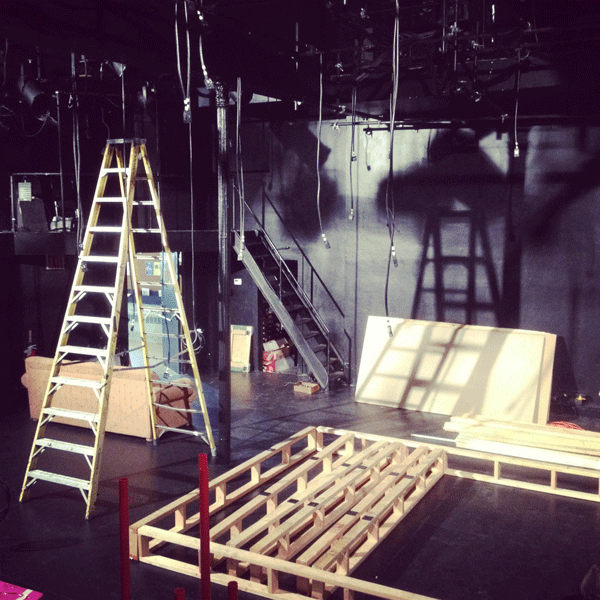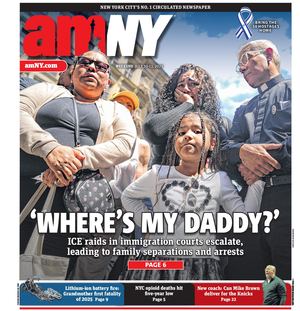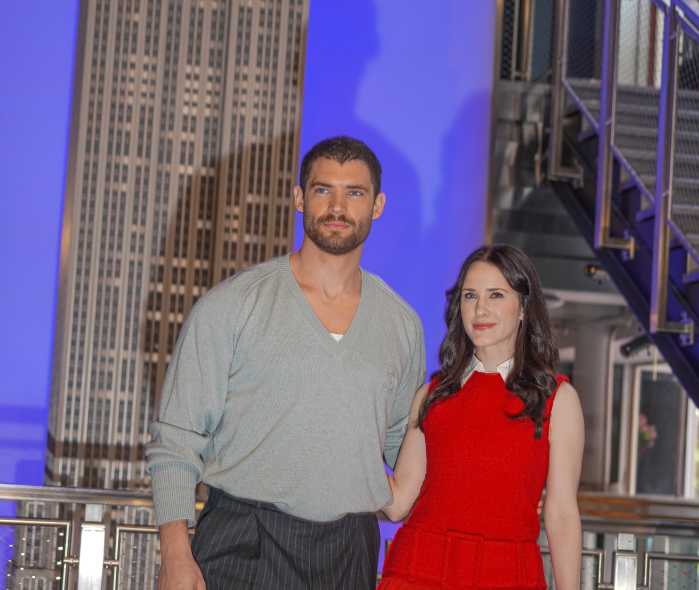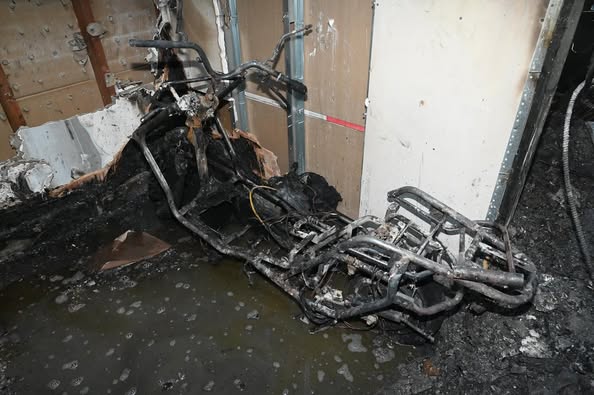
BY SAM SPOKONY | From Chicago, Toronto and other chilly climes they come — to perform daring acts of indie theater and mock a weary Manhattan’s notion of what passes for excessive snowfall.
To the realists and the cynics, it was probably inevitable — but that doesn’t make it any less painful.
After nearly a decade of presenting experimental theater, performance art, concerts and other innovative ventures, the Incubator Arts Project announced in April that it will not renew its lease at St. Mark’s Church-in-the-Bowery, at 131 E.10th St. in the East Village, and will close down on July 1.
Final two shows are a reminder of what made it great
“It’s the end of an era that extends very far back, and this last month is so much about having the last experience as a community,” said Samara Naeymi, Incubator’s producing director, in a May 23 phone interview.
“It’s a stinging feeling that’s going to leave such a big hole in my heart,” she added.
THEATER
“Nomads”
May 30-June 15“Katorga”
June 20-29
At Incubator Arts Project
Located inside St. Mark’s Church
131 E. 10th St. at Second Ave.
Visit incubatorarts.org
The program was originally known as INCUBATOR, when it began in 2005 as an outgrowth of the Ontological-Hysteric Theater, which had been led at the St. Marks space by renowned avant-garde playwright Richard Foreman since 1992 (Foreman originally founded that organization in 1968). When O.H.T. left the church in 2010, INCUBATOR had just won an Obie grant, and it went on to remain at St. Marks’s — renamed the Incubator Arts Project — continuing a mission of providing younger, less established artists with financial support and practical resources as they developed, workshopped and eventually staged their unique works.
Naeymi explained that the reasons for the closure are primarily financial: an inability to meet the company’s bottom line led to the decision to not renew its lease. It wasn’t one particular pitfall that brought down Incubator — which has relied on a mix of government and arts foundation funding, along with private donations — but rather a gradual realization over recent years that incoming cash wasn’t going to be able to make things work in the long run.
“Our ultimate vision was one that entailed more financial and production support, and we tried various structures for producing agreements on different projects, but it just wasn’t balancing out in the way we needed to meet our bottom line,” said Naeymi. “And people should be assured that we, as a team of curators, explored a lot of options in terms of those structures, but we just decided that it was time to strike this one, rather than continue the downward trend and put the burden on the artists.”
She also pointed out that there are no plans for any kind of smaller scale revival of the program in a different location — this is it.
“It’s really so sad that Incubator is closing, because it’s one of the very few theaters left, especially in Manhattan, that’s actually interested in taking on truly experimental theater programming,” said Julia Jarcho, a playwright and New York University professor who will be the second-to-last writer to stage a piece at Incubator.
“They’ve consistently made their choices based on a genuine excitement about new work, rather than on hype or on whose work it was, and it’s sad that they’re closing because of taking those risks,” she added.
Jarcho’s recent career is particularly emblematic of Incubator’s mission — her 2013 play “Grimly Handsome,” which was staged at Incubator, won her an Obie Award for Best New American Play.
“It was a big deal for me, career-wise, so I have a lot of feelings about this space, and it’s going to be tough to see it go away,” she said.
Jarcho will help send off Incubator with her play “NOMADS,” which will run at the space from May 30 to June 15. The play, directed by Alice Reagan, explores themes and moods inspired in part by the work of modernist writer Jane Bowles, and follows two American women in the late 1930s as they struggled to understand both themselves and their ability to communicate with other people.
Aaron Meicht, one of the founders of the arts collective OZET, which presented the multimedia performance piece “Common Hall Village 20” at Incubator in 2012, as well as some other previous works — and which will be the final group to present work at the Incubator space — echoed Jarcho’s sentiments about the closure.
“What’s great about Incubator is that they always understood they were doing tricky work, and that it often wouldn’t have been commercially viable to most other companies,” he said. “They knew you weren’t going to sell 500 tickets a night for that kind of experimental stuff, but they knew it was still worth exploring, still worth doing. And it’s those experiments that really are what the arts are all about.”
Meicht (who is a composer), along with OZET collaborators Scott Blumenthal and Daniel Baker, will close out the space with their new multimedia work “Katorga,” which will run at Incubator from June 24 to 29. Like Jarcho, Meicht was inspired by a writer of yesteryear— in his case, the futurist J.D. Bernal — and used that as the groundwork to develop eight musical themes that grew into the overall work, which will be presented as a live electronic and acoustic music performance, including both spoken and sung text and gestural choreography. The surreal plot of the performance revolves around the experiences of a young woman in a prison colony, who, as she attempts to communicate with her captors, reaches the limits of language and music.
“Katorga” was developed over the course of a two-year residency at Incubator, making it perhaps the perfect show with which to end the company.
“It’s sad for me because I’ve had this long relationship with them,” said Meicht, “and my emotions right now are just leaning more towards the fact that what these guys are doing just can’t be supported in the city anymore. So that’s really a drag, and the whole experience of staging the this work will be bittersweet, because developing the piece here has really made me what I am.”
NEW TENANT COMING SOON, WITH SCHOOL
Just two months after Incubator packs up and leaves St. Mark’s Church, an equally storied replacement will be coming in to fill the space in September.
That will be the New York Theatre Ballet (NYTB), which will be moving from its home of 34 years on E. 31st St. down to the E. 10th St. church. Along with its main offices, the ballet troupe will also be bringing its Ballet School NY into the new space.
The school will begin classes at St. Mark’s Church on Sept. 15, and NYTB “looks forward to becoming an active member of the St. Mark’s community,” according to a press release earlier this month that announced the move, by offering open rehearsals and in-house performances.
“We are thrilled to be beginning this new chapter for NYTB,” said Diana Byer, the troupe’s artistic director, in a statement released with the announcement. “With two national tours planned, a new venue for repertory works and an expanded schedule of classes to meet the needs of our new neighborhood, NYTB is in a stronger position than it has ever been to advance its mission to bring the love and appreciation of dance to an evermore-diverse audience.”
NYTB will now be one of two dance-related organizations located within the church. The other, the Danspace Project, will continue to present new works in contemporary choreography — supporting experimental artists much as Incubator has done.
In addition, the church will also continue to house the Poetry Project, which features live readings and writing workshops, among other special poetry events.


































